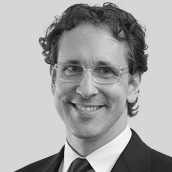
Dr. Juerg Steffen is CEO of Henley & Partners and author of definitive books on high-net-worth relocation to Austria and Switzerland.
Covid-19 has made us all look at the world differently. We always knew that access to quality healthcare was important, but the coronavirus has helped us understand that even the most advanced healthcare systems in the world could be brought to their knees during a global pandemic. The inherent global disruption caused by the virus has made securing access to strong and resilient healthcare systems that can prevent, detect, and respond to infectious disease threats a key concern for our high-net-worth (HNW) clientele.
China’s strict and rapid response when it announced a lockdown in Wuhan and Hubei province cities on 24 January 2020, closing airports and suspending all public transport to prevent anyone from entering and leaving, initially left the rest of the world aghast. But other countries soon followed and began declaring nationwide lockdowns as infection rates soared. The level of unpreparedness was astonishing and disconcerting to observe. In Italy, hospitals very soon began reporting being unable to accommodate the high number of patients who required intensive care. The shortage of hospital beds, ventilators, and health professionals became a real threat. And that was only the beginning.
As the weeks and months passed, and to the world’s shocked amazement, superpowers such as the UK and the US became completely overwhelmed and were left floundering despite being perceived to have the most advanced healthcare systems. The US spends 17% of GDP on healthcare and the UK 10.3% (both well above the OECD average of 8.6%), yet both countries Covid-19 responses were suboptimal, illustrating how abundant resources are no guarantee of health security. Few countries have been as severely impacted as the UK and the US — two of the world’s most powerful nations.

As the pandemic rapidly gained momentum last year, so did the number of enquiries Henley & Partners received from HNW investors from a broad range of countries — developing and developed — all with the same goal: to expand their range of options through residence- and citizenship-by-investment (RCBI) programs in a bid to overcome the limitations and risks of being restricted to a single residence or region. What was eye opening was the number of people who were enquiring about the healthcare capacity of RCBI program host countries — right down to details such as how many ICU beds they had.
This is not to say that they are looking to “jump the queue”. Our sophisticated client base understands that the Covid-19 travel restrictions combined with the inherent processing time makes the acquisition of an investment migration program a strategic investment designed to create lifelong yield. However, what is apparent is that healthcare capacity and quality is now very much part of their long-term life, wealth, and corporate planning and that is also therefore part of their consideration as regards assessing ROI of any investment migration program.
As the world continues to grapple with the havoc wreaked by Covid-19, the demand for greater global mobility and a range of domicile options in different jurisdictions and countries is growing rapidly. The tumultuous start to the decade has resulted in people from all walks of life taking stock and making decisions that will ensure they are better prepared for the next pandemic or global disruption. The relentless volatility in terms of both wealth and lifestyle has resulted in a significant shift in how RCBI programs are perceived by HNW investors. In the past, alternative residence or citizenship were seen as ‘nice-to-have’ assets of convenience that enhanced travel freedom and provided vacation homes — in the Covid-19 era, they are ‘must-have’ essential assets to hedge against ongoing risk and uncertainty and create new value and opportunities to enhance the well-being of the entire family.
For many years, HNW families across the world have opted for investment migration as a means of securing access to business, investment, career, real estate, educational, and lifestyle opportunities on a global scale, enhancing their international mobility and transcending the inherent constraints of their countries of origin. Now, in addition to providing access to all the advantages to which HNW investors have become accustomed, participating in a RCBI program is also seen as an investment in physical and financial longevity — one that can provide a safe passage to health security in an alternative location from which they and their families can continue to operate should the need arise.
There is another interesting, evolving trend among affluent entrepreneurs and savvy international investors who are building geographically diversified domicile portfolios through multiple RCBI options in a strategic effort to create optimal value and mitigate risk in terms of where they and their families can live, work, study and invest.
Before Covid-19, affluent investors chose where to reside based on somewhat predictable factors such as quality of life, access to education, and visa-free travel. Now the big drawcards include safety and security, access to first-class healthcare with strong capacity, reliable infrastructure, pandemic preparedness and management, good airlinks, and most importantly — better prospects for their children and grandchildren and a safe and comfortable retirement for their parents and grandparents.
By investing in a suite of RBCI programs, investors and their families are also automatically endowed with an extended range of options for themselves and their families, including healthcare. Building a varied investment migration portfolio can hedge against ongoing risk and uncertainty and facilitate both wealth portfolio and holistic lifestyle diversification that creates significant new value and positive optionality.
As Prof. Peter J. Spiro, Charles Weiner Professor of Law at Temple University Law School, wrote in the Global Mobility Report Q1 2021, Covid is making people feel their citizenship more than ever before, but it is also giving us more reason to secure additional citizenships. Even holders of premium citizenships now have a compelling incentive to acquire further citizenships, and others will consider second or third citizenships as a kind of health insurance against future pandemics or other global disruptions.
As the Investment Migration Programs Health Risk Assessment reveals, numerous RCBI countries have relatively low rates of infection, such as Malta, St. Lucia, and Thailand, or have managed the pandemic extremely well, such as Canada, Australia, and Switzerland — or both, such as New Zealand. All offer pathways to permanent or long-term residence and/or citizenship for investors — and investors are taking note.
As 2021 progresses, vaccination programs are being rolled out and there is a new race to vaccinate, bringing with it a chance for countries to redeem themselves and regain the trust of their citizens. Five of the top ten countries in terms of vaccinations per 100 people are included in the Investment Migration Programs Health Risk Assessment, including the UK and the US. This provides us with another yardstick by which to measure countries offering investment migration programs.
Developing a strong investment migration portfolio takes careful planning and it also takes time. The current pandemic put a spotlight on the importance of being prepared for the worst, at every level — from the individual to the family and extended family, and from the community to the national, regional, and global. You need to take a strategic, long-term approach, and avoid having to make a mad dash for the emergency exit when things go wrong in your current place of residence.
Henley & Partners assists international clients in obtaining residence and citizenship under the respective programs. Contact us to arrange an initial private consultation.

Have one of our qualified advisors contact you today.
We use cookies to give you the best possible experience. Click 'Accept all' to proceed as specified, or click 'Allow selection' to choose the types of cookies you will accept. For more information, please visit our Cookie Policy.